
Chairman of Board of Directors at Al Jazeera Media Network. After working in several positions in Qatar’s Ministry of Information and Culture in the late 1980s and early 1990s, the young new leaders of the country decided to abolish the ministry and think globally. Sheikh Hamad was tasked with founding the project that eventually produced Al Jazeera in November 1996. He was appointed Chairman of the Board of Al Jazeera Satellite Channel that year. Ten years later, in the prelude to the launch of Al Jazeera English in 2006, the company renamed itself Al Jazeera Media Network. Today, his purview encompasses all of the channels under the Al Jazeera umbrella, in addition to the leadership of the Qatar Media Corporation. Sheikh Hamad holds a Bachelor’s Degree in Journalism from Qatar University (1987).

Advisor to the Qatari Prime Minister and Spokesperson for the Qatari Ministry of Foreign Affairs. He was a professor of political sociology at Qatar University where he also served as the Director of the Policy Department at the Institute of Social and Economic Survey Research. He is also the head of Qatar International Academy for Security Studies. Al-Ansari obtained his master’s degree and PhD in social transformation from the Cathy Marsh Institute at the University of Manchester in the United Kingdom, and wrote a thesis entitled, “A Minority of Citizens: The Effects of Religious, Social and Political Values on Trust in Expatriates in Qatar”. In addition, he appears in Arab and foreign media as a political analyst. His research interests include public opinion surveys, social capital, political and religious values, charity work and current affairs.
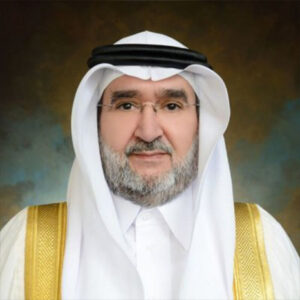
Founder and Chairman of Gulf Research Center and Saudi expert on Gulf politics and strategic issues. He is also the editor-in-chief of Araa, a monthly Arabic-language magazine focused on Gulf affairs, and The Gulf Yearbook. He has also been a visiting professor at a number of universities and a member of various councils, advisory and academic committees, institutes and international research centres. He participates in international and regional conferences that discuss issues pertaining to the Gulf region. In addition, Sager has authored and edited numerous publications and has many articles in local and international newspapers related to Gulf affairs and regional issues. He frequently contributes to major international media outlets. Sager holds a PhD in politics and international relations from Lancaster University, a master’s degree from the University of Kent, and a bachelor’s degree from the Faculty of Economics and Administration at King Abdulaziz University.
Assistant Professor of Policy planning and development department of International Affairs
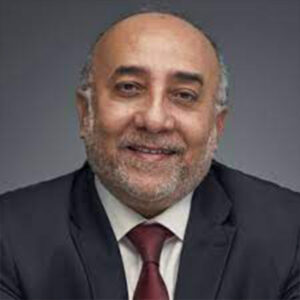
Professor and Director of the Political Science Graduate Programme at Kuwait University. He is also the founder and former chair of the American studies unit at the same university. He obtained his PhD in political science from the University of Texas at Austin in 1988. In addition to his academic posts, Al-Shayji served as a political advisor to the Chairman of the Kuwaiti National Assembly and in the Foreign Affairs Committee, the Fact-Finding Committee, and the Committee for Kuwaiti Prisoners of War and Hostages in the National Assembly (1992-1996). From 2001 to 2004, he served as counsellor and head of the Kuwaiti Information and Media Bureau at the Kuwaiti Embassy in Lebanon. He specialises in American affairs, Gulf security, political development and strategic studies and has numerous publications in these areas.
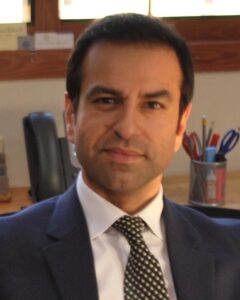
Salman Shaikh, Founder and CEO of The Shaikh Group (TSG), a specialised peacebuilding organisation dedicated to mitigating and resolving violent conflict. Before establishing TSG, he was the director of the Brookings Institution’s Doha Center, where his research focused on conflict resolution, domestic policy, and geopolitics of the Middle East, particularly Syria, the broader Levant, the Gulf region and Iran. Shaikh previously worked the United Nations in a number of offices, including as Special Assistant, Middle East and Asia in the Office of the Undersecretary-General for Political Affairs, political Advisor to the Secretary-General’s Personal Representative for Lebanon during the 2006 war, Special Assistant to the Special Coordinator to the Middle East Peace Process, and Programme Officer for the Special Representative for Children in Armed Conflict. He appears often as a political analyst on Arabic and international television channels and has published research and articles in numerous periodicals such as Foreign Policy, The New York Times, The Daily Beast and Christian Science Monitor.
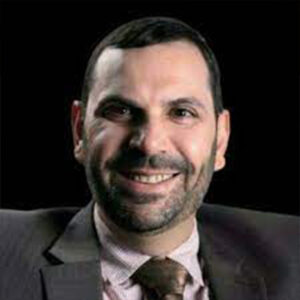
Researcher at Al Jazeera Centre for Studies specialising in the affairs of the Mashreq (Levant region) and Islamist movements. He holds a PhD in Islamic studies (with a focus on law and the principle of fiqh). His research interests include crises in the Levant region; particularly Lebanon, the Syrian issue, the Peace Process and the Arab-Israeli struggle, Sunni and Shiite trends, and Jihadist groups and their intellectual and jurisprudential rhetoric and political orientations. Choucair has made many contributions and conducted extensive research including, “Hezbollah: Riwayatihi lal Harb as-Suriya wa al-Mas’ala al-Madhhabiya [Hezbollah’s narrative of the Syrian war and the sectarian issue]”, “’Ulama’ at-Tayyar al-Jihadi: Al-Khitab wa ad-Dawr wa al-Mustaqbal [The rhetoric, role and future of Jihadi ‘scholars’]”, “Al-Judhoor al-Ideolojiya la Tandhim ad-Dawla al-Islamiya [The ideological origins of the Islamic State]” and “Al-Hirak al-Libnani: As-Siyaq al-Arabi wa Tahadiyat Nuskhat at-Taef ath-Thalitha [The Lebanese Movement: The Arab Context and the Challenges of the Third Taif Agreement]”.
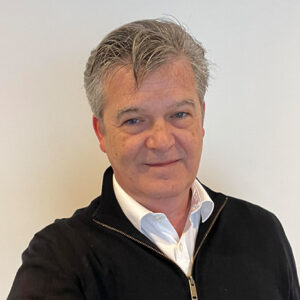
Co-Founder of Gavekal Intelligence Software, the quantitative arm of the Gavekal Group, and Head of Research. He successively moved from the derivative trading space, to hedge fund management, and global asset management. He was Treasurer of Bank of America Paris, then head of interest rate arbitrage and prop trading at Bank of America London in the 90s. He founded Insight Finance in 2000, an equity arbitrage quantitative hedge fund, and managed the portfolio until 2006. He then turned to global portfolio management within Renaissance Capital and joined Gavekal in 2014. Darcet has a double background in nuclear physics from Supelec –Paris, France- and in political sciences from Science Po –Paris, France.
strategy and military expert and retired general in the Lebanese army. He is a graduate of the US Air Force’s Air Command and Staff College (ACSC) with an equivalent to a master’s degree in strategic studies, and Notre Dame University-Louaize with a master’s degree in international affairs and diplomacy. He has given lectures on security sector reform in collaboration with the United Nations Development Programme as well as on geopolitical issues. He also teaches several courses on world political geography, geopolitics, the Causes of War, Lebanon and the Middle East, Introduction to Political Science, and the Laws of Disruption. Hanna has a television programme on MTV that discusses geopolitical issues.
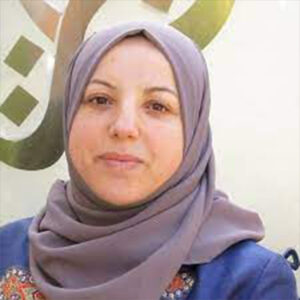
Senior Researcher at Al Jazeera Centre for Studies where she supervises Iranian, Turkish and Central Asian studies. She is also a professor of Iranian affairs and served in numerous Jordanian universities. Alsmadi has a PhD in social sciences from Allameh Tabataba’i University and has a number of publications on Iranian affairs.

Director of the Palestinian Forum for Israeli Studies (MADAR) and Visiting Professor at Birzeit University. She has published tens of articles and studies on Zionism, settler colonialism and its developments in Palestine, the nakba and its effects on cultural discourse, the social role of the Palestinian intellectual, and identity building. She has also edited a number of studies, including “Fi Ma’na ad-Dawla al-Yahudiya [On the meaning of the Jewish state]” and “Israel wa al-Apartheid: Nadhra Muqarena [Israel and Apartheid: A Comparative Look]” with Azar Dakwar.

Vice President of the Center for Middle Eastern Studies (ORSAM) in Ankara. He is also an associate professor at the Department of International Relations and lecturer at the Middle East Institute at Sakarya University. His research focuses on the politics and international relations of the Middle East, with a particular focus on the Gulf countries and North Africa as well as Turkish foreign policy toward these regions and beyond. He is the editor of Middle Eastern Studies, a quarterly journal, and The Middle East Press, both published by ORSAM. In addition to his scholarly works, he contributes commentaries and opinions in international media outlets including TRT World, Al Jazeera, BBC, Deutsche Welle and Le Monde.
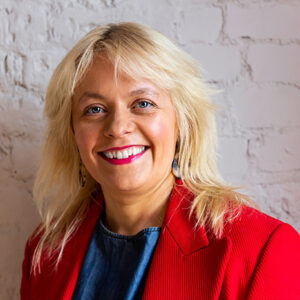
Policy and Impact Director at the European Leadership Network. Previously, she was head of programmes for The Elders, an organisation of global leaders founded by Nelson Mandela to work for peace, justice and human rights around the world, and deputy head and senior research fellow at the Middle East and North Africa Programme at Chatham House. In addition, she served as associate director for the Middle East and Africa at The Economist Group and senior editor and economist at The Economist Intelligence Unit. Moreover, she has contributed articles and analysis to a wide range of publications including The Economist, Financial Times, Newsweek, The Guardian and Prospect, and consultancies and NGOs such as Oxford Analytica and Freedom House. She appears regularly in the broadcast media. Kinninmont has a master’s degree in international politics from the University of London’s School of Oriental and African Studies and a bachelor’s degree in politics, philosophy and economics from Balliol College, University of Oxford.
Senior Researcher at Al Jazeera Centre for Studies and Deputy Editor-in-Chief of Lubab. He obtained his PhD in mass communications from the University of Baghdad in 1995, and became assistant dean of its College of Arts from 1997 to 2000 and head of its Department of Mass Communications from 2000 to 2002. He was awarded a professorship in mass communications in 2002. In addition to the University of Baghdad, where he was a professor of journalism from 1989 to 2003, Al Azzawi served as associate professor at Ahlia University in Bahrain and Qatar University, and visiting professor at the University of Aden. Aside from his academic work, he served as executive news producer at Al Jazeera Channel and assistant managing editor at Al Jazeera Net from 2004 to 2018. He was named “Best Journalist in Iraq” by the Iraqi Journalists’ Syndicate in 1995.

Director of Gulf Studies Center and Professor of Gulf and Iranian Studies and Contemporary Politics of the Middle East at Qatar University. From 2011 to 2016, he was the head of the Department of Humanities. Before joining Qatar University, Zweiri was a senior researcher in Middle East politics and Iranian affairs at the Center for Strategic Studies, University of Jordan. He was also a visiting professor at the School of Government and International Affairs at Durham University. From March 2003 to December 2006, he was a research fellow and then the Director of the Centre for Iranian Studies in the Institute for Middle Eastern and Islamic Studies at Durham University. He has over 85 publications on Iran and contemporary Middle East history and politics. In addition to Arabic, he is fluent in English and Farsi.

President and Founder of Jusoor Center for Studies. He is also a researcher and political activist. After studying business administration, he got involved in political work with the eruption of the Syrian revolution in 2011, and moved to Turkey to participate in founding the Syrian National Council, which was the basis on which the National Coalition for Revolutionary and Opposition Forces was established. Then, he served as an advisor to the President of the Syrian Interim Government before devoting his work to research. At the beginning of 2016, he founded Jusoor Center for Studies in Turkey, which is dedicated to the study of Syrian affairs, and continues to be its director. The centre has since opened a number of offices in Syria, Turkey and Britain. Sarmini is also the editor-in-chief of Nedaa Post.

Yemeni writer and politician and Former Yemeni Deputy Minister of Foreign Affairs. He also served as the Yemeni ambassador to various countries, including Bahrain, Canada, India and Spain. Noman writes regularly for a number of newspapers and appears on Arabic and foreign television channels as a political analyst.

Secretary General of the Independent Defense Anti-Corruption Committee (NAKO). Before joining NAKO, she served as the Director of Ukraine’s Ministry of Economic Development and Trade, where she oversaw the portfolio of over $12 billion in international development projects. After residing in the United States for ten years, she returned to Ukraine and joined the government to contribute to the post-Maidan transformation of her country. In addition, she has been a board member of Hromadske TV since 2020. Tregub has received several awards for her reforming anti-corruption work, and was recognised by New Time Magazine as one of 100 most influential women in Ukraine.

Advisor to the Director General of Al Jazeera Media Network and expert in African affairs. He is also a researcher and academic, and obtained his PhD in planning from University of the Witwatersrand in 2009. He was the director of Al Jazeera Centre for Studies from 2010 to 2018 and the National Center for Media Production in Khartoum from 1996 to 1998. Elzein was chosen for one of the youth seats in the Sudanese parliament in 1997 and was elected president of the National Union for Sudanese Youth (1998-2000). Moreover, he served as researcher and coordinator at Volunteer and Service Enquiry Southern Africa (VOSESA), non-profit research organisation that studies, analyses and documents civic service and volunteering for development in Southern Africa. His research focuses on development and citizenship, especially the participation of disadvantaged communities in policy making. He has conducted extensive field studies in shantytowns in South Africa and Brazil and researched the areas of social development in Zimbabwe, Zambia, South Africa, Botswana and Malawi. He writes on Sudanese affairs and participates as a political analyst on Arab and foreign satellite channels.
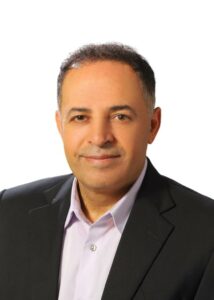
Professor of International Relations at Qatar University. He previously taught at different universities including Yale University, the University of Jordan and Nebraska University Omaha. He also served as a senior fellow at the US Institute of Peace. Barari obtained his PhD from Durham University. Over the courses of 25 years, he has published ten books in both English and Arabic and over 50 peer-reviewed researches. He is a well-known commentator on Middle Eastern politics.

Associate Professor, Faculty of World Studies, University of Tehran
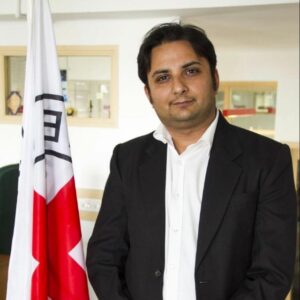
Legal Advisor at the International Committee of the Red Cross. Fahad’s portfolio includes providing support to states in the implementation of IHL in the Near and Middle East. Prior to this position, he served as the ICRC’s Legal Advisor seconded to the African Union in Addis Ababa and the Legal Advisor to Operations for the ICRC’s Regional Delegation for India, Bhutan, Nepal and the Maldives. Ahmed has educational qualifications from the Harvard Law School and the University of Amsterdam and was a fellow at the United Nations University in Tokyo. He has worked and lived in Africa, Asia, Europe and North America and has a keen interest in multilateral humanitarian negotiations.

Deputy Director of the International Press Institute (IPI), the global network of editors, journalists, and media executives dedicated to supporting press freedom and independent journalism. He joined IPI as press freedom adviser focusing on Latin America and the Caribbean and later as director of press freedom programmes. He is the author of numerous IPI reports on diverse topics related to press freedom and independent journalism and has led or participated in dozens of IPI press freedom missions around the world. He comments regularly on issues related to press freedom and media pluralism in international media. Griffen holds degrees from Yale University and King’s College London.

Professional journalist and novelist. He worked as a correspondent for Aljazeera for more than a decade, he covered wars and conflicts around the world especially in Libya, Afghanistan and Ethiopia.
He also worked in adjusting the editorial standards of the Aljazeera network, moreover published several books, including two books about his journalistic experience.
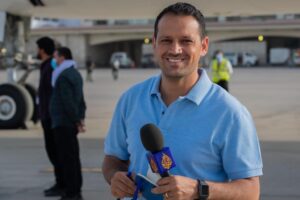
A Palestinian professional journalist, he started in the West Bank before moving to Aljazeera Network. He participated, in a very professional way, in covering the American withdrawal from Afghanistan and the Russia-Ukraine war for two continuous months; in addition to the covering of several political events in Iran, Qatar and Africa.

Leonid Issaev (Ph.D. in Political Science) is currently an associate professor at the Department of Political Science and International Affairs and the Deputy Director of the Center for Risks and Stability Studies (CRSS) at the HSE University. He is also the senior research fellow at the Center for Civilization and Regional Studies of the Institute for African Studies, which is part of the Russian Academy of Sciences. He teaches courses in Islamic political philosophy and political systems and political processes in the Arab World. He is author of more than 200 academic publications including such monographs as Federalism in the Middle East. State Reconstruction Projects and the Arab Spring (Springer, 2021), New Wave of Revolutions in the MENA Region. A Comparative Perspective (Springer, 2022) etc.
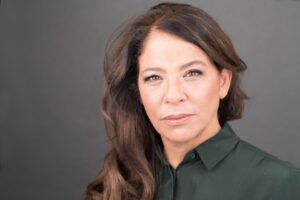
Is an award-winning roving correspondent for Al Jazeera English. She has reported for Al Jazeera from across the Middle East, Europe and North Africa. Hoda has also received a number of prestigious awards during her career as a broadcast journalist, including one at the Festival du film de Monaco and three Emmy Awards.”